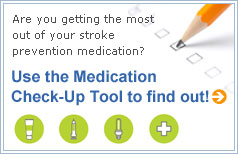You may only have a short time in your doctor's office. Here are the top 5 ways to make the most of it:
- Do your homework: Write down what you're hoping to get out of the visit, what you want to ask the doctor, and any concerns you may have. Bring a record of your medications, medical conditions, allergies, and medical history.
Use the Doctor Discussion Guide
to keep track of this information and prepare for talking with your doctor.
- Bring a friend: You may want to bring a friend or family member to your appointment to make you feel less intimidated, help you remember to ask all of your questions, and take notes.
- Ask your most important question first in case you run out of time.
- Take notes so you remember your doctor's instructions.
- Speak up if you don't understand. It can also help to repeat back what you've heard in your own words to make sure you've understood it.






